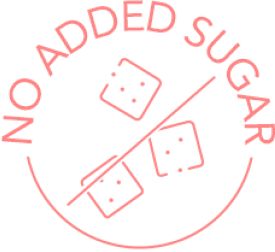Best exercises for each type of PCOS

Ring-tailed lemur from Madagascar says it right - I like to move it, move it - I like to move it, move it, move, - I like to move it. Woman! Physically fit, physically fit….🎜🎝♫
While there is no quick fix or permanent cure for PCOS, positive lifestyle changes can help you manage and control PCOS symptoms. Changing your diet and adding a bit of movement to your routine, have shown to improve PCOS symptoms over time.
And their benefits go beyond just weight loss. From boosting insulin sensitivity, lowering cholesterol, increasing endorphins, improving sleep, lowering your risk of heart disease to regulating hormones - exercise has proven to be beneficial for women with PCOS.
While all kinds of exercises are great for feeling great, over-exercising and certain kinds of exercises may not be recommended based on the type of PCOS you have.

1. HITT or miss
HIIT stands for high-intensity interval training. They focus on intense effort movements through quick bursts of exercise followed by short rest times, usually for just 15-20 minutes. HIIT is known to improve insulin sensitivity and also increase HGH (Human Growth Hormone) which helps improve the metabolic rate.
But, since it is an intense form of cardio it may add more stress, lead to cortisol production and worsen inflammation. Hence, HIIT is recommended for women with insulin resistant PCOS but not those with adrenal and inflammatory PCOS.

2. Just keep swimming
Moderate cardio such as walking and swimming can improve blood sugar levels, cholesterol levels, brain function, and improve sleep and mood. They also help keep the body active and reduce cortisol levels.
But intense cardio such as uphill hiking, tabata training. running, speed walking may increase inflammation, increase stress hormones, and lead to other negative symptoms like amenorrhea (loss of your period). If you have adrenal PCOS, doctors recommend not overdoing the cardio.
3. Hot girl summer with resistance training
Aka strength training. This involves activities that focus on building muscle - sit ups, squats, push ups, leg raises and planks . They typically involve the use of weights, resistance bands, or your body weight. Similar to cardio, this can be moderately intense or extremely intense. If you have adrenal or inflammatory PCOS, you start with moderate strength training. This will help build stronger bones, support metabolic function, and lower blood pressure.
Intense strength training could increase androgen levels, stress hormones, inflammation, and oxidative stress, especially if done without proper refuelling and recovery.

4. Move your body like this
Yoga or pilates have also been helpful for women with PCOS. These involve gentle movements focusing on stretching, balancing and toning exercises through the use of your body weight while holding various poses.
As per a study, those who did yoga for one hour, thrice a week had a significant decrease in free testosterone levels and DHEA, and improvements in anxiety, depression, and regulation of their menstrual cycles. Pilates also helps strengthen your uterus and lower stress-related cortisol levels. This is over and above benefits like toning, flexibility and building core strength.
Remember, ‘less is more’ when it comes to exercising. If you’re experiencing sleep issues, feeling burnt out or exhausted, mood swings due to intense workouts, then they’re probably not the best thing for you. Try switching to moderate exercises and just keep moving!







